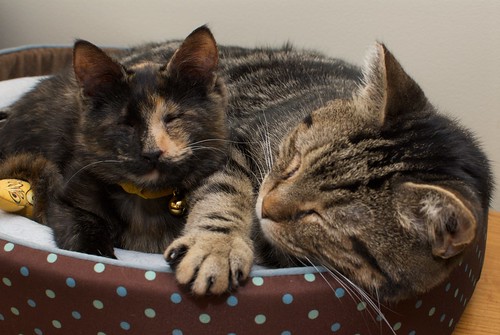
Dogs and cats might offer protection against respiratory illnesses in the first year of an infant’s life, a new study has revealed. Finnish researchers have found that having pets during infancy may actually protect children from respiratory illnesses during the first year of their life. They followed 397 children from the time their mothers were pregnant through age 1. The scientists found that those who were exposed to dogs at home had fewer respiratory illnesses or symptoms compared with children who didn’t have dogs. Children with dogs also had less-frequent ear infections and needed antibiotics less often as compared to those children who were never exposed to dogs. Cats offered similar protective benefits, but to a lesser degree. According to the authors, the findings suggest that early contact with dogs or cats may ramp up infants’ immune systems. “We speculate that animal contacts could help to mature the immunologic system, leading to more composed immunologic response and shorter duration of infections,” ABC News quoted. The amount of time a dog spends inside the home also has an impact on children’s respiratory health. Children who live in houses where dogs are inside less than six hours a day are at lowest risk for respiratory problems. The authors think that it could be because dogs that are inside track less dirt. More exposure to dirt leads to more exposure to different types of bacteria, which can help strengthen the immune system. Other studies also suggest that pets can lower children’s risk of certain illnesses. Research out of the University of California, San Francisco published in June found that dust in homes where there are dogs may protect children against respiratory syncytial virus, a common cause of potentially severe cold-like illnesses. But the Finnish study didn’t include parents with allergies to dogs or cats. Parents with these allergies are more likely to have children with the same allergies, and having pets around very young children who are allergic may not be very safe. “If an infant has an allergic predisposition, their reaction will be more pronounced than an older child’s,” said Dr. Nina Shapiro, director of pediatric otolaryngology at UCLA’s Mattel Children’s Hospital. Dr. Shapiro meant that if an allergic infant is exposed to a dog or cat, it can potentially be dangerous. That’s what kept David Bakke from getting a pet for his son, even though the little boy always wanted one. Bakke, an editor at Money Crashers Personal Finance, is allegic to several animals. “We decided against it because of potential health risks for myself as well as the possibility of long-term respiratory illness for my son,” Bakke said. The study was recently published in the journal Pediatrics.Source: Indian Express, Source: Image

